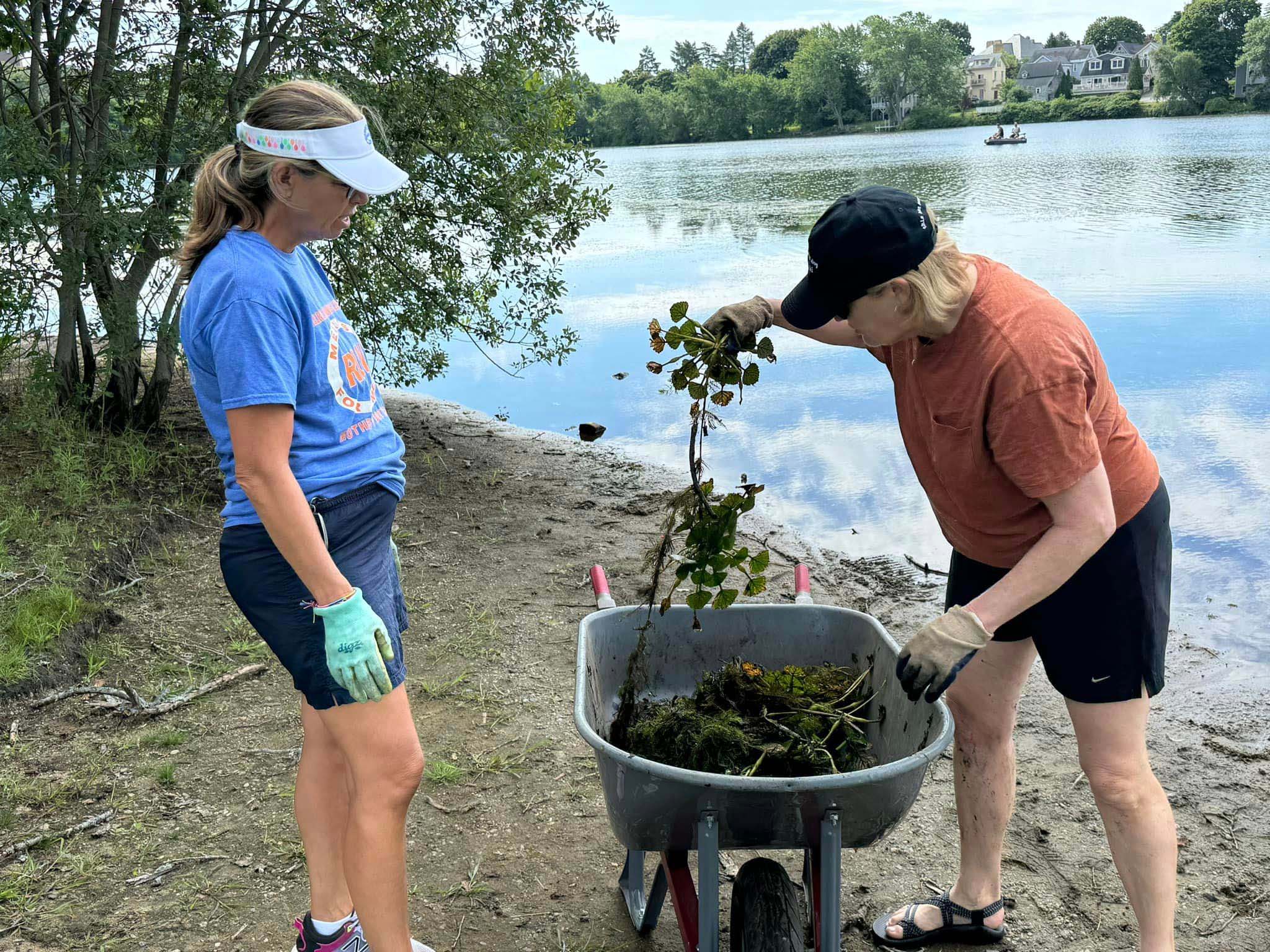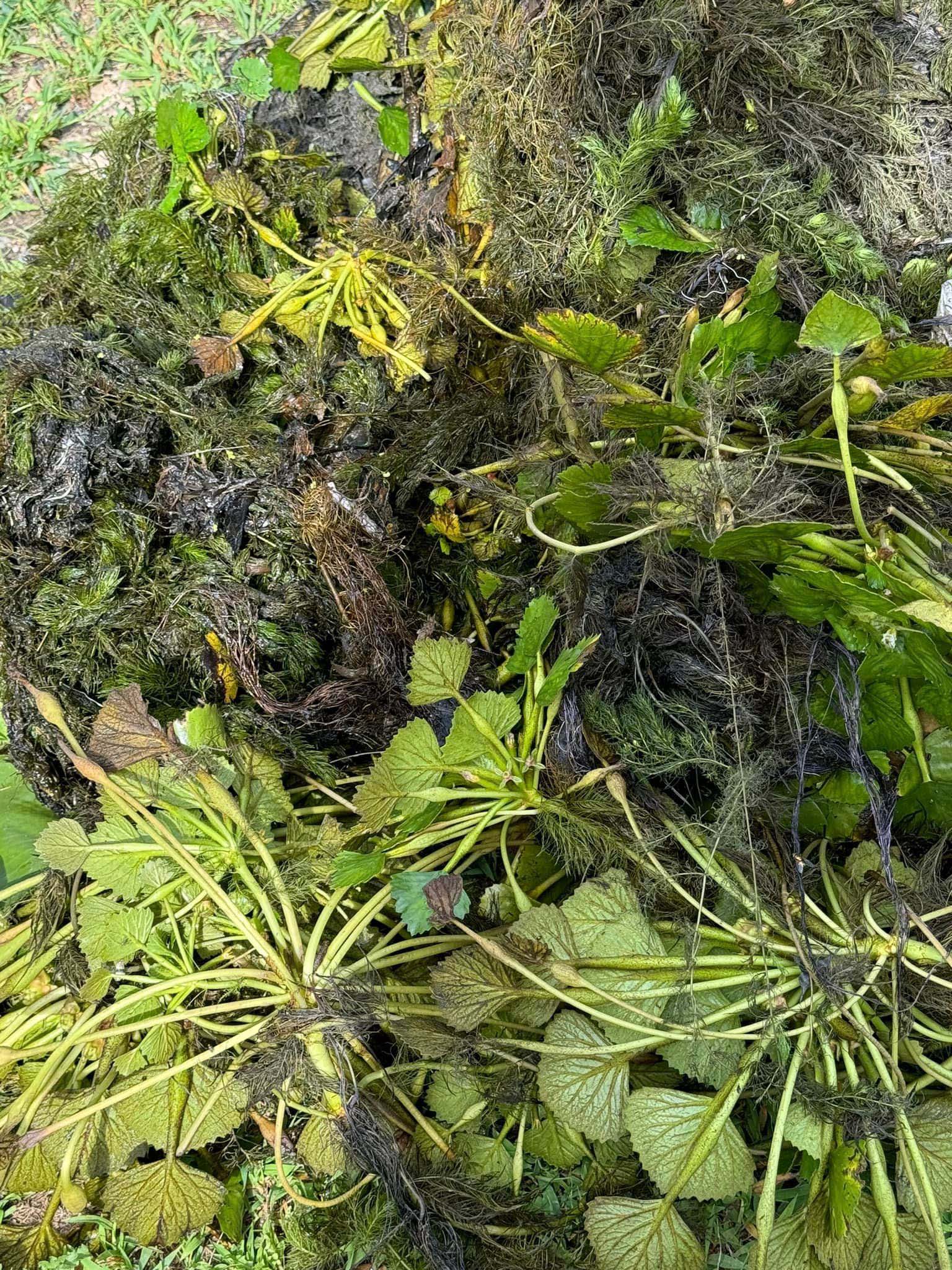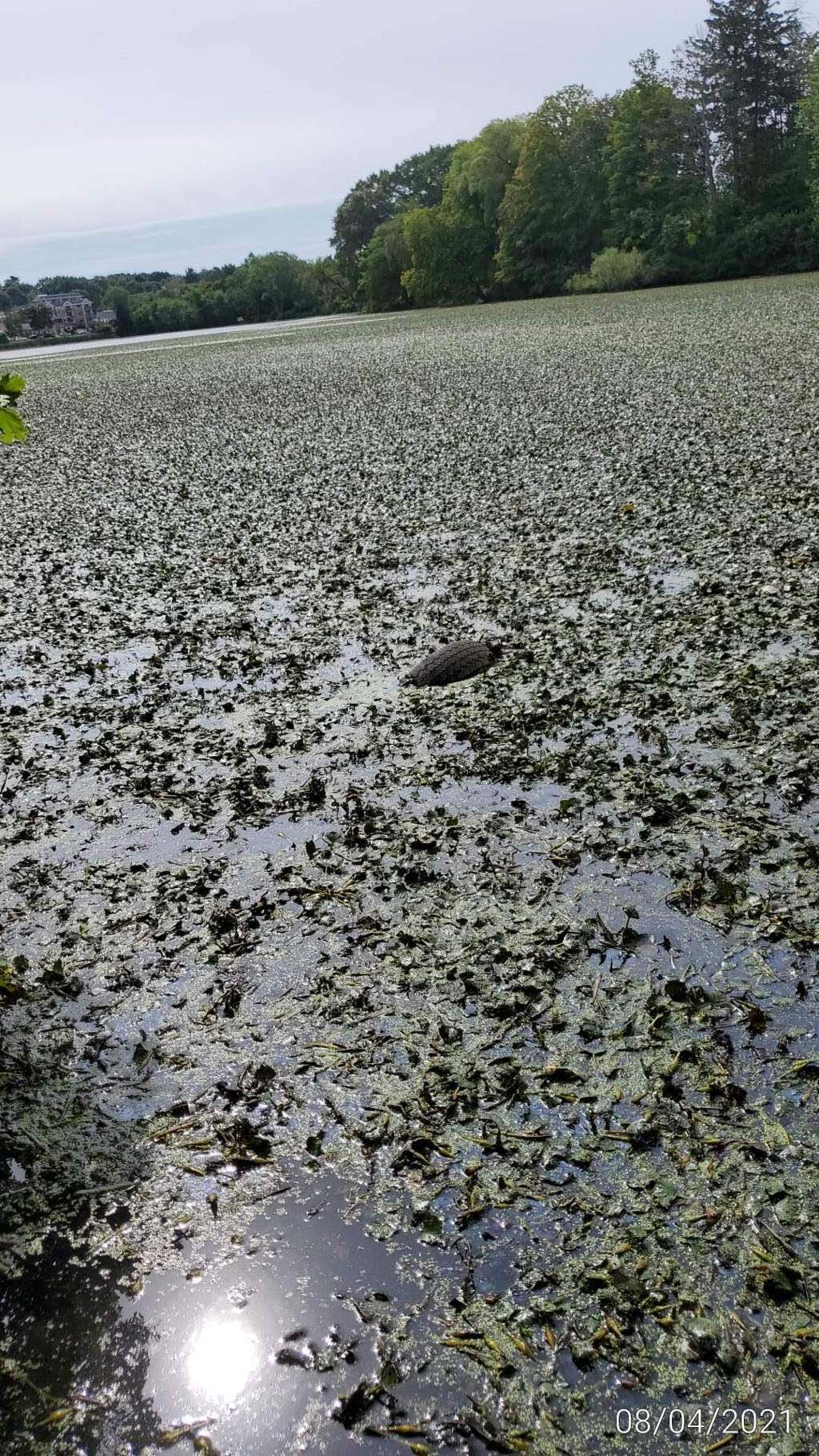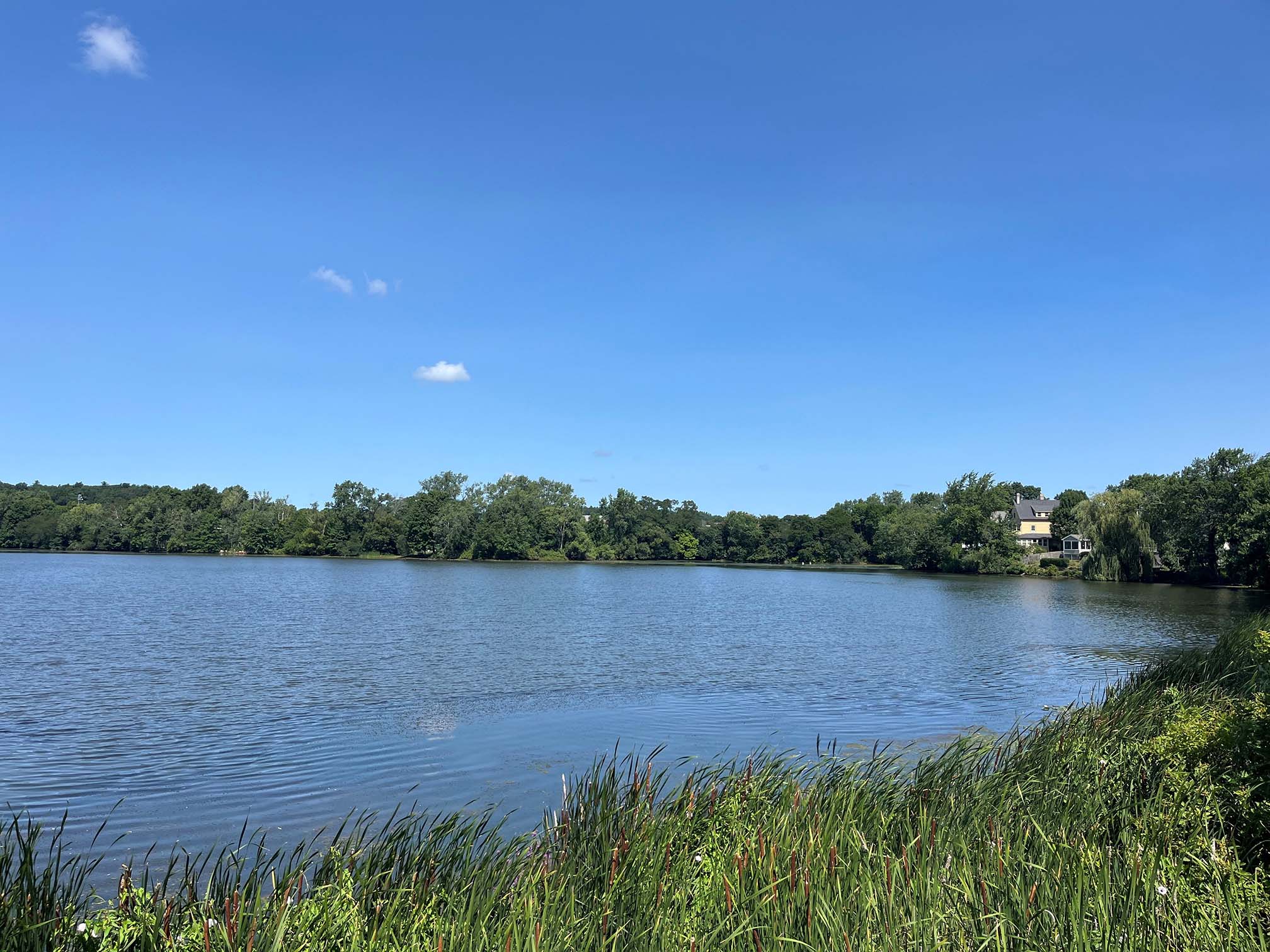Volunteers Battle Invasive Water Chestnuts at Ell Pond Clean Up Day

Volunteers at Clean-Up Day
Photo Credit: Nancy Clover
Last Sunday, volunteers came out to Ell Pond to help remove water chestnuts, an invasive species that can cause significant damage to local ecosystems if they aren’t kept under control.
The volunteers pulled up water chestnuts along the shore or went out in kayaks and canoes to pull them from the surface of the pond. Volunteers who didn’t bring their own boat could join in the effort too, with help from the community boating concession that the Boys and Girls Clubs of Stoneham and Wakefield started at Ell Pond last year.

Water Chestnuts Pulled Up By Volunteers
Photo Credit: Nancy Clover
Water chestnuts are an invasive species native to Eurasia and Africa that can be found in many local water bodies, including the Charles River, the Mystic River, and our own Ell Pond. Water chestnuts grow rapidly - a single acre of water chestnuts can grow enough in one season to cover 100 acres the following year. They grow so dense that they can block sunlight from reaching below the surface of a pond, and they can also deplete oxygen in a water body, which can kill native plants and fish. They also provide a breeding ground for mosquitoes.
According to Ingrid Winkler, Conservation Agent for the City of Melrose, water chestnuts have been a problem in Ell Pond for at least the last four years. In 2022, Melrose began a three-year contract with Solitude Lake Management to remove water chestnuts using a mechanical harvester as well as manual removal in shallower areas of the pond.
The treatment plan, which has now come to an end, was successful at significantly reducing the water chestnut population. However, water chestnut seeds drop to the bottom of the pond before sprouting the following year, making complete eradication challenging. “It’s a future maintenance issue,” Winkler explained, and the population “can easily explode again if you don’t keep on top of it.”
Next year, the contract for water chestnut removal will no longer be active. The water chestnuts on Ell Pond will be sparse enough that “hand-pulling should be enough to keep them at bay,” Winkler said. But because water chestnuts spread so quickly, the city will need to rely on volunteers to participate in several clean up days similar to last Sunday’s in order to keep the problem under control. “It’s not hard,” said Winkler, “they come up pretty easily. You just have to be persistent and try to get them.”



Follow Us: